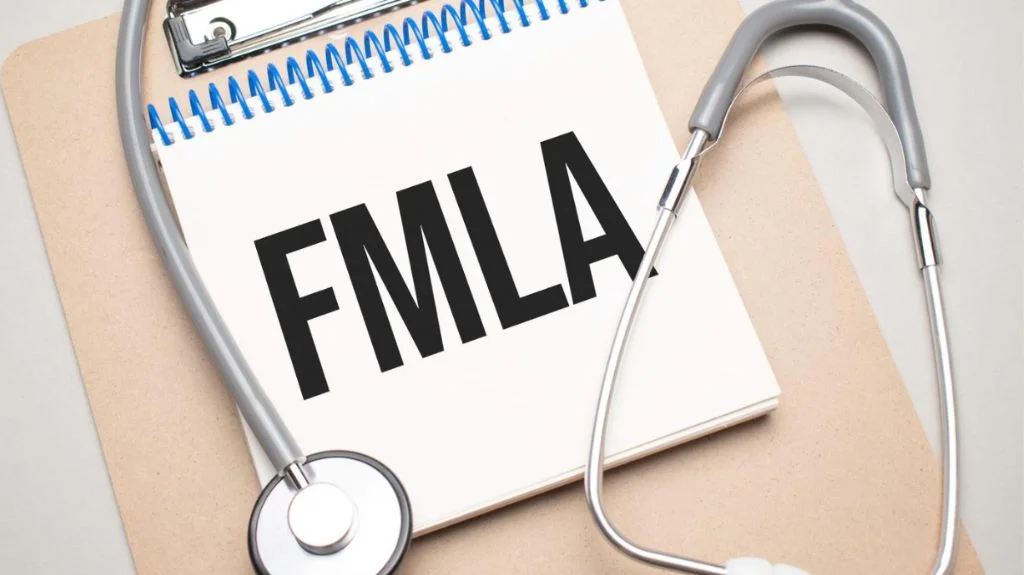To file an FMLA violation complaint, contact the U.S. Department of Labor’s Wage and Hour Division (WHD). Provide details about your employer, the violation, and supporting evidence. Complaints can be filed online, by mail, or in person. Acting promptly ensures your rights are protected and potential remedies pursued effectively.
The Family and Medical Leave Act (FMLA), a law safeguarding employees requiring time off for purposes of family care responsibilities, including childbirth, is a significant framework to protect workers’ rights at workplaces nationwide. The act also provides guidance on how individuals can address any potential breaches of these rights and effectively empower them in the workplace. With an FMLA Lawyer on your side, you can navigate this time effectively. This guide explains the steps involved in complaining about FMLA violations and provides guidance and encouragement for individuals dealing with this challenging situation navigating through this complex process.
Exploring Your Entitlements
Before making a complaint about any issues at work under the Family and Medical Leave Act (FMLA), it’s crucial to have an understanding of the rights it provides to employees. This law allows employees to take time off from work without pay for certain reasons related to family or medical matters without worrying about losing their jobs. These reasons could involve dealing with health conditions affecting oneself or a family member in need of care or taking leave to bond with a newborn or adopted child. Knowing about these rights is important as it lays down a foundation before addressing any concerns through a complaint process.
Uncovering violations of the Family and Medical Leave Act (FML)
Identifying a breach is a part of the complaint procedure that must be considered thoroughly. Look out for violations such as the refusal of leave as retribution for taking time off or insufficient job security upon coming back. Scrutinizing whether an employer’s behavior goes against FMLA regulations is key to assessing the legitimacy of a complaint. Present your case with documented incidents and gathered evidence.
Collecting Information
Substantial evidence provides support for any grievance you may have. Important paperwork can consist of file exchanges with your employer and testimonies from witnesses. These details play a role in proving the validity of your case. Keeping your records organized facilitates the smooth presentation of evidence to the parties. Comprehensive documentation is crucial in constructing an argument.
Seeking Advice from Professionals
Seekers of assistance from professionals in the field of employment law can greatly benefit from their expertise and guidance. This specialized counsel is customized to circumstances to ensure that any grievances adhere to guidelines. Interacting with a lawyer aids in understanding one’s entitlements, evaluating consequences, and receiving assistance during the journey. Legal knowledge typically fosters assurance in maneuvering through protocols.
Initiating the Process of Submitting a Complaint
After you get everything to go, you need to submit a complaint to the proper agency. Usually, in these situations, the U.S. Department of Labor’s Wage and Hour Division (WHM) deals with FML complaints. When you make your submission, you’ll have to provide details about the violation, back it up with evidence, and share some information. By completing this step, an investigation will be set in motion, and officials enforcing FML regulations will be notified about the issue.
Possible Results
Different results could result from the investigation process in a situation. If the evidence backs up an employee’s accusation against their employer, penalties could be imposed or corrective actions mandated. These actions may involve rehiring the employee, paying for lost wages, and stopping any behavior. On the other hand, a lack of evidence might lead to the complaint being dismissed. Hence, knowing about these outcomes helps you have expectations.
Exploring Possible Solutions
Filing a complaint is smart however, considering other options can lead to positive outcomes at times, too! Trying out mediation or having talks with the employer might help resolve conflicts. These alternatives often encourage discussions. They promote mutual understanding between the involved parties, which could help avoid prolonged legal disputes. Assessing solutions gives opportunities to address complaints effectively.
In Summary
When you need to report violations of the Family and Medical Leave Act (FML) it’s crucial to be well-prepared and persistent in your approach. Understanding what constitutes a violation and collecting evidence are steps in this process. Seeking advice from experts. Using the proper channels can help individuals assert their rights and seek justice. Being informed is empowering for those dealing with issues. Contributes to creating a fair and supportive work environment, for everyone involved.

